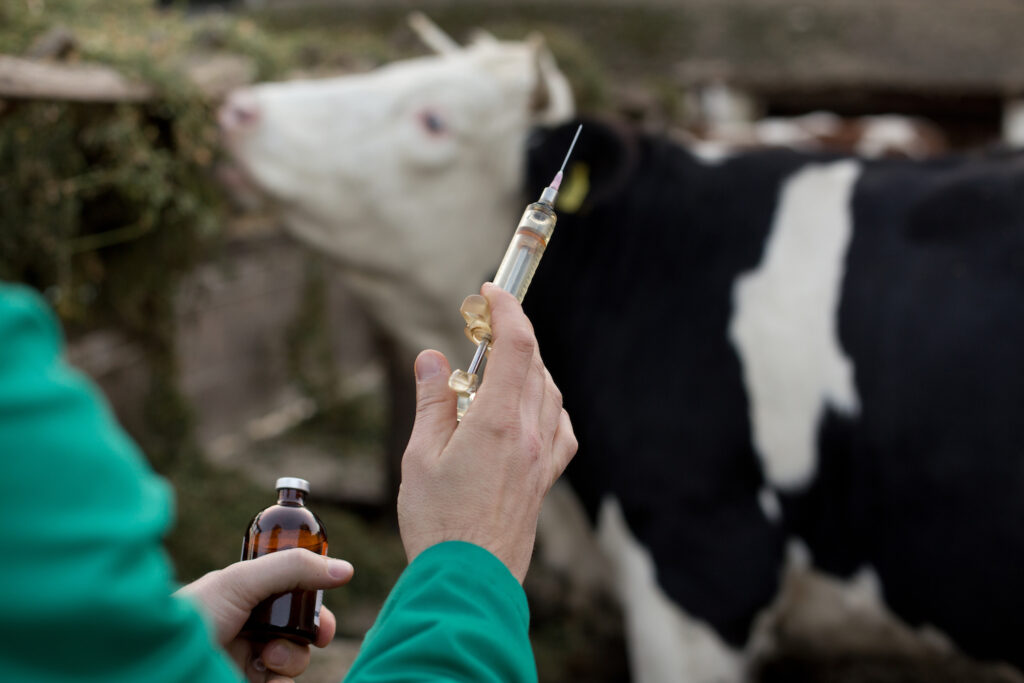‘First of its kind’ vaccination guideline to support cattle and sheep farms
26th May 2022
NOAH has launched the Livestock Vaccination Guideline to help vets, SQPs and farmers improve the health and welfare of UK cattle and sheep – as well as farm resilience and sustainable improvements in productivity.
In a time when preventing and controlling disease on farm has never been more important, the new vaccination guideline supports UK animal health and welfare ambitions, food security and safety and advances the competitiveness of British produce.
This is according to the National Office of Animal Health (NOAH), as it launches its Livestock Vaccination Guideline, which brings together current veterinary clinical experience and research to demonstrate a proactive, best practice approach to vaccination in the dairy, beef and sheep sectors.
It encourages discussion between vets and farmers to help them apply effective vaccination strategies on farm, to ensure that the benefits from livestock vaccination are realised.
In the face of new agriculture policies, evolving disease challenges, new trading arrangements and the urgent need to meet environmental sustainability goals in response to climate change, preventing and controlling disease is key. Healthier animals mean better welfare and more sustainable farming, and a preventative health approach for UK livestock, supported through vaccination, is integral to achieving this, NOAH says.
At the launch of the guideline, NOAH chief executive Dawn Howard, commented: “We are focusing on priority diseases and those conditions where increased uptake of vaccination can make a real difference to the level of disease across animal populations.
“This will not only help improve health and welfare on individual farms but also help raise health and welfare levels across the whole country, meaning UK farming will be better equipped to provide safe, high-quality and nutritious food, while also delivering the environmental benefits from healthier animals.
“Livestock vaccination can be complex, but provides huge benefits, not just for animal health and welfare, but also has a positive impact on food, economic and job security in the UK. Having the right tools, medicines and technology to provide adequate prevention, diagnostics, monitoring and treatment has never been more important.”
The guidance was authored by Jonathan Statham, chair of the Animal Health and Welfare Board for England; Fiona Lovatt, Royal College of Veterinary Surgeons (RCVS) recognised specialist in sheep health and Joe Henry, RCVS recognised advanced practitioner.
Mr Statham said: “Vaccination can have a major positive impact on animal health and welfare, One Health and sustainable farming, but how well is the true potential of vaccination really being harnessed and how can we improve our current approach? To answer this question requires a fresh and challenging review of current practice, which is what this guideline aims to achieve.”
Ms Lovatt, Royal College of Veterinary Surgeons added: “The last couple of years have demonstrated the key importance of vaccination as a tool to ensure good human health. In a similar way, vaccination has a vital role to play in terms of ensuring good health, welfare, productivity and sustainability of our livestock herds and flocks.”
Mr Henry concluded: “Vaccination has many roles to play in delivering more profitable, sustainable, and higher welfare beef production, from helping to achieve good fertility in beef cows to reducing the impact of disease in calves, ranging from slow growth rates, morbidity and mortality.”
Meanwhile the guidance has been welcomed by MSD Animal Health. Ruminant business unit director Sam Gayton described it as a “seminal publication” which will play a “pivotal role” in helping the whole industry adopt best practice.
“Ultimately, sustainable food production starts with healthy animals, and the guideline brings a new urgency to discussions between vets, farmers and industry, leading to effective vaccination strategies becoming the default on-farm,” he concluded.
The Livestock Vaccination Guideline is available here.

